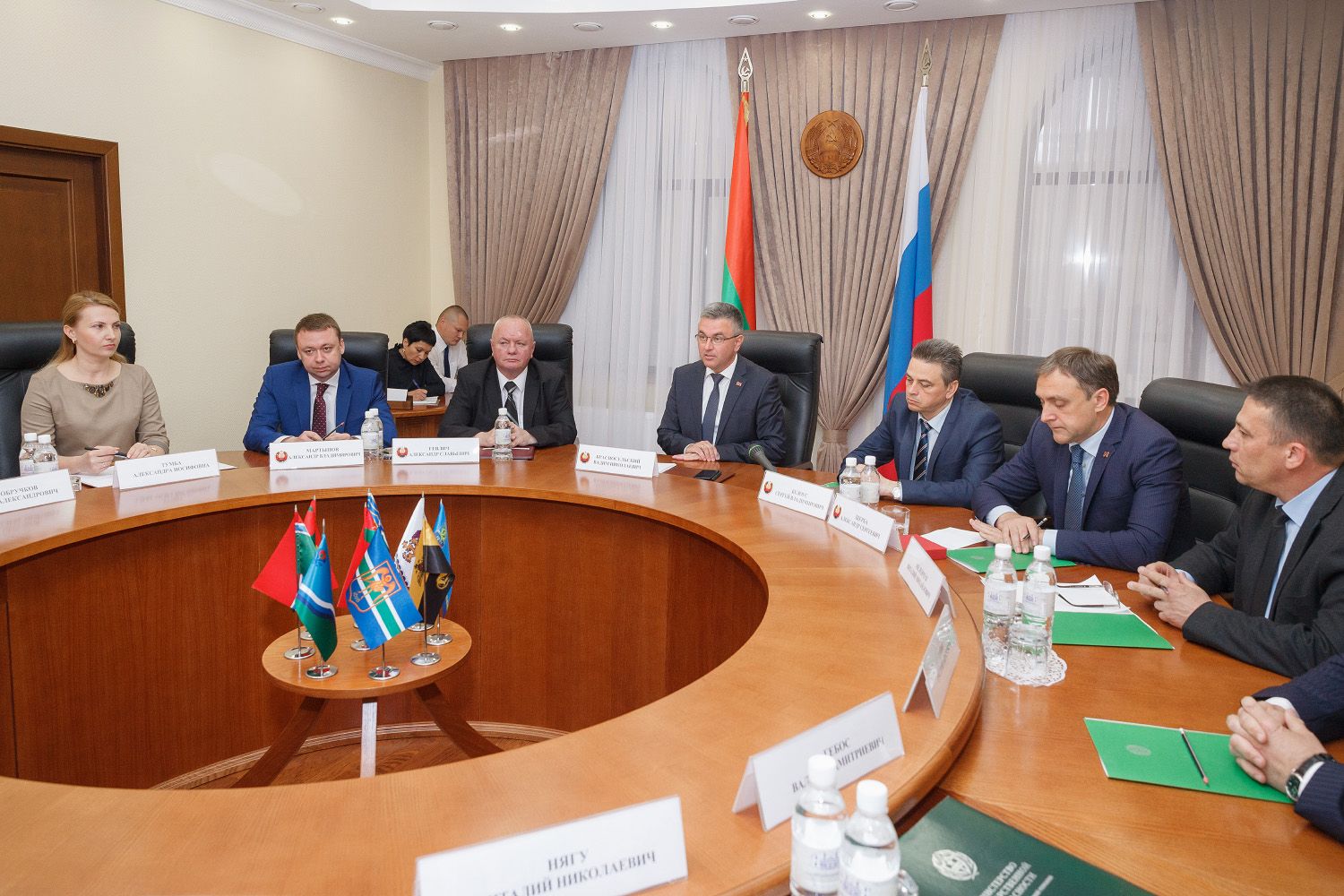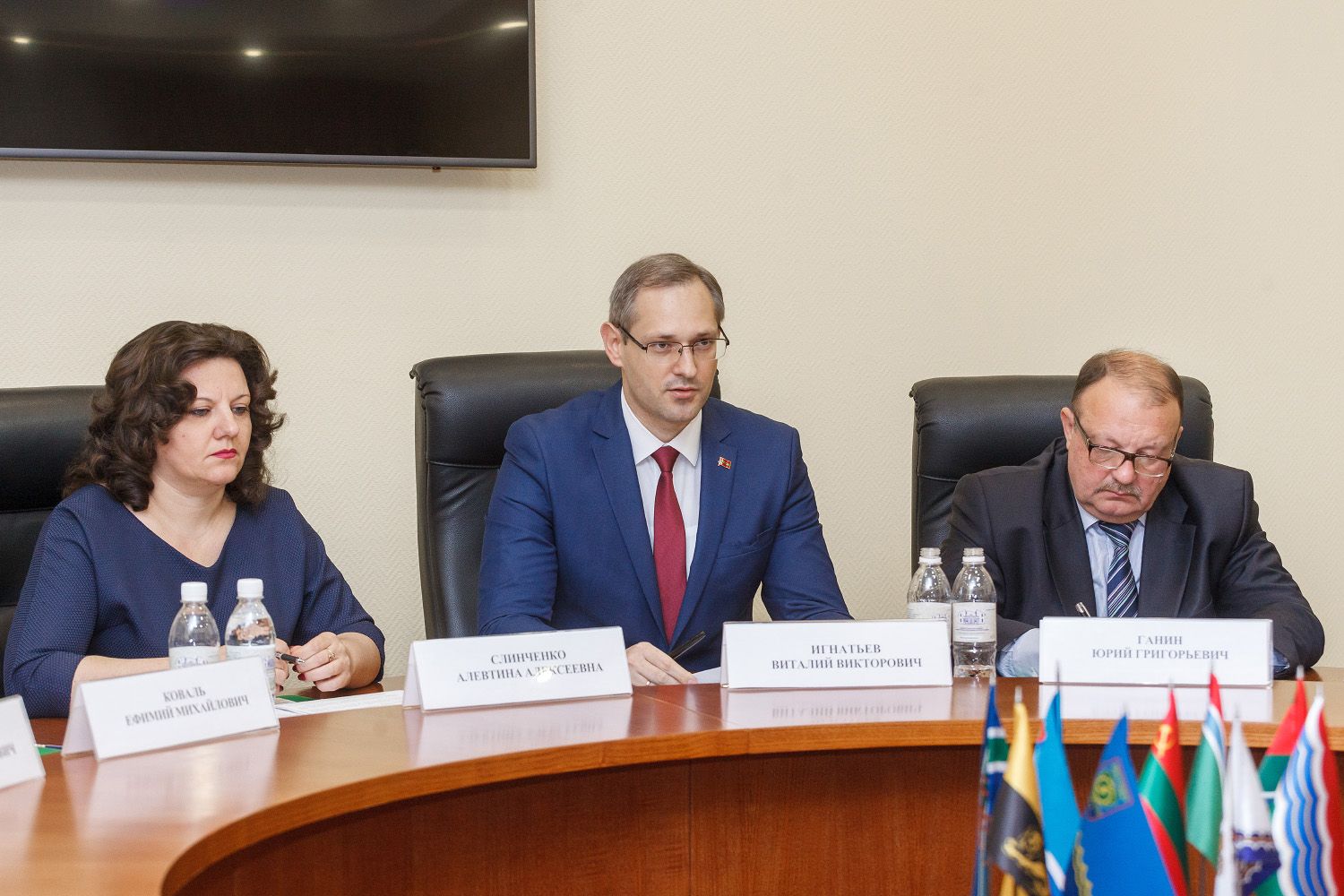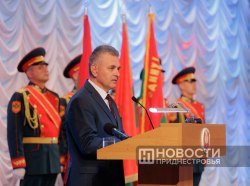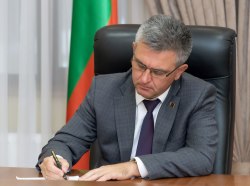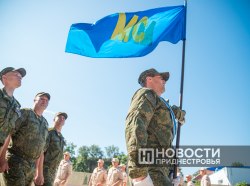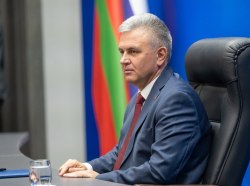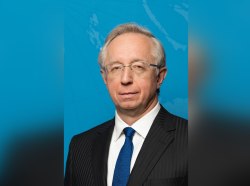Tiraspol, 23 April. /Novosti Pridnestrovya/. The president held a meeting of the Security Council of the PMR. The main issue on the agenda was the organization of joint Moldovan-Ukrainian control on the Pridnestrovian-Ukrainian border, the presidential press service reports.
Opening the meeting, Vadim Krasnoselsky noted the activities undertaken by the neighbouring states were of blockade nature and stressed that it was a question of the country's security. The president encouraged the members of the Security Council to consolidate efforts to develop response measures.
A report on the current state of affairs, the prerequisites for the current situation, the possible consequences of its development, as well as steps taken to reduce negative costs through diplomatic channels, was made by foreign minister Vitaly Ignatyev. He recalled the agreements signed by Moldova and Ukraine, including on the organization of joint control, as well as the first phase of their practical implementation - the official opening of the checkpoint Kuchurgan in the summer of 2017.
"In practice, Phase 1 means the right to control exports from Pridnestrovie by representatives of the customs services of Moldova. It should be noted that so far no incident related to the control of exports from Pridnestrovie at this border crossing point has been recorded de facto. On 12 April 2018, the Ukrainian president during the meeting with the Moldovan prime minister signed a law ratifying the agreement between the governments of the two countries on joint control, and as early as 18 April, the customs service of Moldova took under control import and export operations at the checkpoint Kuchurgan within the framework of the so-called test mode 'Phase 1 +'," said the foreign minister.
Ignatyev also spoke about the risks that the decision taken by Moldova and Ukraine entails. Among them are the restriction of import of goods subject to veterinary and phytosanitary control, related to the lack of a mechanism for processing this product category; problems with the supply of medicines (firstly, it is necessary to obtain a Moldovan license; secondly, the nomenclature of medications allowed for sale in Pridnestrovie and Moldova is strikingly different); an increase in financial and time costs associated with triple customs clearance.
Problems will be encountered both by exporters and importers: the number of permits will increase significantly. In addition, the countries have different criteria for importing vehicles. A complex situation is faced by individual entrepreneurs: 11,000 Pridnestrovian patent-holders involved in foreign economic activities will either have to register in Moldova or cease operations presumably in July.
The country cannot admit a blow to the employment of the Pridnestrovian population, Vadim Krasnoselsky stressed. He drew attention to the fact that now it is a question of one checkpoint, and in the long term, a similar situation can occur at other checkpoints. This is the blockade - economic, humanitarian, social, the president emphasised. He called the council members to declare its inadmissibility on all available venues, corroborating Pridnestrovie's position with concrete facts and figures.
The first deputy minister of economic development, Alevtina Slinchenko, spoke about negative economic consequences. She said that the Ministry of Economic Development had been carrying out systematic work on risk assessment since the end of 2016. The latest analytical data show that the losses caused by the new restrictions can reach about $40 million.
"In addition to the economic losses, it is necessary to take into account the social damages associated with taking additional measures to ensure employment of the population, as well as problems with the supply of food, medicines, price control," emphasized the minister.
It was said during the meeting that for several years Pridnestrovie had been working to notify the international community about the potential risks related to the organization of joint Moldovan-Ukrainian control. The analytical data collected four years ago remain relevant. Reliable information must be delivered to the maximum number of addressees, the members of the Security Council believe.
The official letter with information on the current situation and the inadmissibility of creating restrictive barriers was handed over by the foreign ministry to all the participants of the "5 +2" format. It was proposed to immediately hold a meeting of political representatives dedicated to the issue of joint customs and border control, Vitaly Ignatyev said. He noticed that the Moldovan side had confirmed its readiness to take part in such a meeting.
"We believe that the beginning of a political dialogue on these issues, the identification and focusing on humanitarian and social aspects will allow us to achieve a certain international understanding of the inadmissibility of any form of restriction of the freedom of movement of people, goods and services, including the banking sector. These destructive unilateral decisions, which do not take into account the interests of Pridnestrovie, contradict the corpus of agreements of the negotiation process, including the Berlin and Vienna protocols signed in recent years," said the minister.
Ignatyev voiced a number of practical proposals aimed at protecting and ensuring the interests of Pridnestrovian citizens and economic agents.
The meeting participants determined the parameters of the consolidated position and outlined further steps aimed at countering the existing challenge to the state interests of Pridnestrovie.

